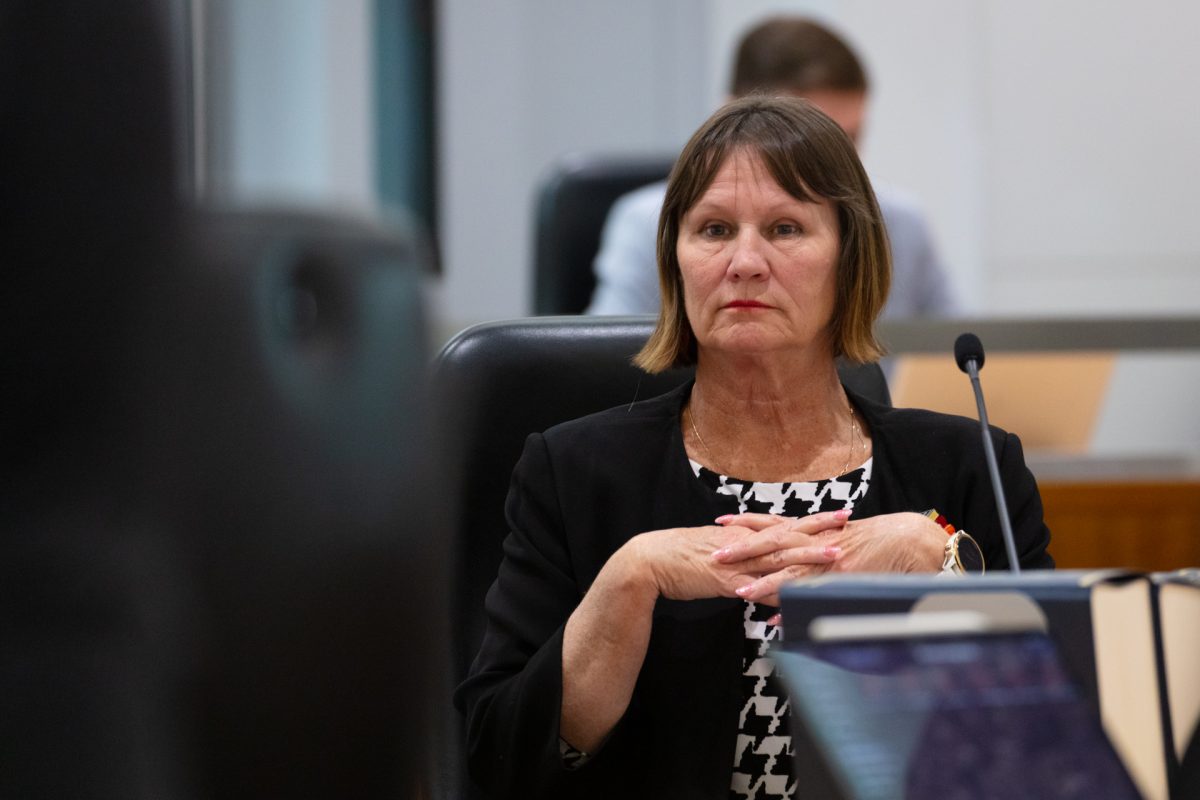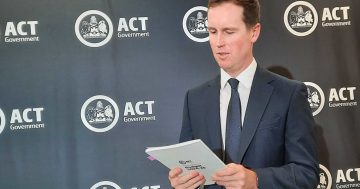
Opposition whip Nicole Lawder has expressed her disbelief that a select committee will only have 11 days to produce a scrutiny report into the 2024/25 ACT Budget. Photo: Thomas Lucraft.
A select committee inquiry will have only 11 days (including weekends) to produce a report scrutinising the ACT Government’s yet-to-be-delivered 2024/25 Budget.
A motion to establish a select committee on estimates 2024-2025 was moved in the Legislative Assembly on Thursday (11 April) – a standard practice each year to look into the ACT Budget as handed down by the Treasurer.
It allows the public to see where money is going, industry representatives and stakeholders to ask questions, and for ministers and directorate officials to be questioned about certain monetary decisions.
Previous select committee on estimates reports had raised concerns that tighter timeframes between hearings and producing a report were impacting staff and the scrutiny process because the answers to questions on notice weren’t required to be filed by the time the report was produced.
In fact, the 23/24 committee report recommended there should be four weeks between the close of hearings and the report’s due date.
But the ACT Labor whip Suzanne Orr introduced an amendment to the motion, presented by Opposition whip Nicole Lawder, inserting a start date for hearings and revising the reporting dates for the upcoming committee.
She said the changes reflected “the government’s need to respond to the report prior to the last sitting week [of the year].”
The amendments stated hearings would finish on 6 August, 2024, and the report would be due on 16 August.
The government goes into caretaker mode during the pre-election period, which is 37 days ending on the end of polling day for an election.
The 2024 election will be held on 19 October.
ACT Greens whip Andrew Braddock voiced his party’s support for the dates but acknowledged the timeframe was tight.
“Unfortunately the squeeze in an election year means [this timeframe] was what was required,” he said.
Ms Lawder was not impressed.
“I fear this is quite a ridiculous reporting period,” she said.
“How on earth the committee is going to produce a report in that time, I just do not understand.”
Ms Lawder said the community could draw the inference that the government was trying to reduce the scrutiny of the budget by requiring such an “inadequate” timeframe.
“It is a vital part of our democratic process and that the government feels they can come in and propose an 11-day period, which includes weekends … I think it quite ludicrous, quite unrealistic.”
She said while she understood the government also needed time to respond to the committee’s report and recommendations before it went into receivership, she questioned why the government couldn’t deliver the ACT 2024/25 Budget in the first sitting week of June, rather than the last.
She also questioned how many questions on notice would be taken by ministers and directorate officials given their responses weren’t required to be delivered until after the reporting date.
“This is just an abuse of the power of the government, of Labor and the Greens colluding … to reduce scrutiny, reduce accountability, and misuse of their ability to direct the work of this Assembly by ignoring our democratic processes,” Ms Lawder said.
“Eleven days to produce a report is unprecedented … quite unrealistic, it’s almost offensive to the process of democratic scrutiny and of parliamentary oversight.”
Ms Lawder, Ms Orr and the ACT Greens’ Laura Nuttall will make up the select committee.





















